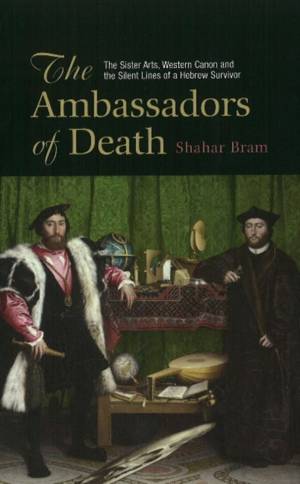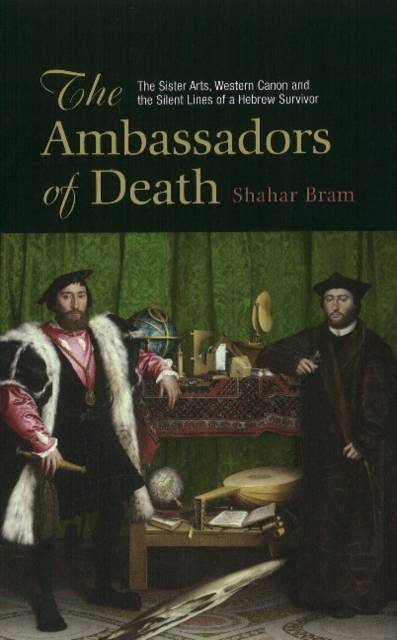
- Afhalen na 1 uur in een winkel met voorraad
- Gratis thuislevering in België vanaf € 30
- Ruim aanbod met 7 miljoen producten
- Afhalen na 1 uur in een winkel met voorraad
- Gratis thuislevering in België vanaf € 30
- Ruim aanbod met 7 miljoen producten
Zoeken
The Ambassadors of Death
The Sister Arts, Western Canon and the Silent Lines of a Hebrew Survivor
Shahar Bram
Hardcover | Engels
€ 132,95
+ 265 punten
Omschrijving
Tuvia Rubner, winner of Israel Prize for Poetry (2008), is a Hebrew poet who lost his family in the Holocaust. He turned his personal trauma into a broad world view that engages with Western culture, his poetry highlighting correspondences with paintings by Chagall, Breughel, Holbein, Turner and Rembrandt. Death and loss are molding experiences in this poet's world. Paint and sculpture masterpieces are signalled as masks, as Ambassadors of Death. Rubner's poems enable us to examine the tradition of various forms of artistic representation, while addressing the experience of art in a century when God 'hid his face' from the fate of European Jewry. And as Shahar Bram discovers and elaborates, herein lies an exquisite example of the use of ekphrasis -- Rubner using his poetic language medium to explain and process the meaning and messages inherent in a select group of paintings and sculptures of cultural significance. This important book contributes to the interdisciplinary theory of "word and image", and the history of the relationships between "sister arts". The result is not only a unique perspective of traditional Western art form as reflected in the eyes of a Hebrew survivor of twentieth-century Holocaust atrocities, but, in the words of Ruskin, it is "the expression of one soul [one artistic form] talking to another". The result is a profound understanding of the central principles of word and image art forms. Konrad-Adenauer Prize for Literature 2012
Specificaties
Betrokkenen
- Auteur(s):
- Uitgeverij:
Inhoud
- Aantal bladzijden:
- 197
- Taal:
- Engels
Eigenschappen
- Productcode (EAN):
- 9781845194505
- Verschijningsdatum:
- 12/10/2010
- Uitvoering:
- Hardcover
- Formaat:
- Genaaid
- Afmetingen:
- 160 mm x 224 mm
- Gewicht:
- 430 g

Alleen bij Standaard Boekhandel
+ 265 punten op je klantenkaart van Standaard Boekhandel
Beoordelingen
We publiceren alleen reviews die voldoen aan de voorwaarden voor reviews. Bekijk onze voorwaarden voor reviews.











